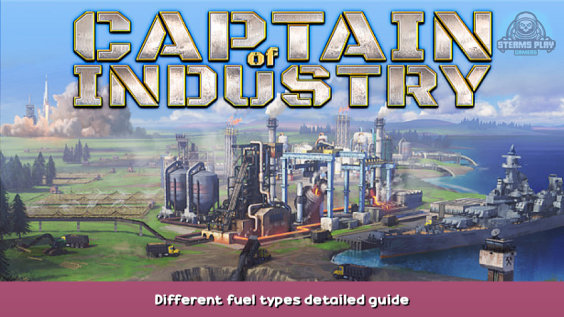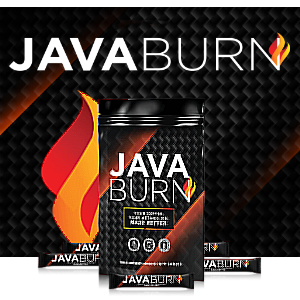
This guide will compare the different fuel types derived from crude oil and their energy efficiency when used to produce steam, for electricity generation.
Disclaimer
Hello !
This guide is not a be-all end-all cookbook that will show you the perfect 100% efficient way to produce fuel.
It is just a basic summary of the different oil byproducts, how much energy they can generate, and if the transformation processes are a net gain or loss of energy.
I will also include some basic analysis.
Feel free to let me know if I missed any important details, or if I have made any mistakes (about the data, or simply writing mistakes. English is not my first language) 🙂
General fuel data
The bread and butter of this guide !
This will allow you to compare fuel stats at a glance.
I’ve included steam-hi so you can see how much energy 1 unit of steam produces.
Unless stated otherwise, all of the data in this guide is per 60 seconds (instead of per production cycle). All the energy has been calculated using stats from the SECOND turbine and generator (the more efficient ones)
Click on the image to enlarge
- Fuel type : the resource used to power a boiler for 60 seconds
- Fuel qty : the amount of that resource used to power the boiler
- Steam Hi : the amount of steam created per 60 seconds
- Mech : Mechanical power produced by that amount of steam, in MW, in a high pressure turbine 2
- Electricity : the amount of electricity, in MW, you can produce with the amount of mechanical power, using a Generator 2 (except for diesel, which uses its own generator)
- Electricity/fuel : the amount of electricity divided by the amount of fuel. A.K.A. how much electricity 1 unit of fuel of this type provides
**BONUS** I’ve added pollution data, since I already had all the fuel table ready. This is important because some fuel types seem very attractive energy-wise, but could make your citizens very sick if used at a large scale. This pollution data, however, only includes the pollution created by using the fuel. The pollution created by producing the fuel (mainly sour water) won’t be included in this guide.
- Exhaust type : what gas is exhausted when this fuel is burned in the boiler
- Exhaust qty : how much gas is produced
- Pollution : How much pollution is emitted when the gas is directly vented with a smokestack
- Pollution/fuel : Pollution divided by the amount of fuel. How much pollution 1 unit of this fuel emits when used in the boiler.
What can we learn from that ?
You can see that coal provides the most amount of electricity per unit. However, it also pollutes a lot, along with diesel and heavy oil.
Fuel gas may provide less energy per unit than most other fuels, but it also produces more than 2 times less pollution, thanks to its exhaust being carbon dioxide instead of plain exhaust. Seems like a good candidate for long term energy production.
Distillation
Is it better to have less of the more advanced stuff or will you have more with less when you try to do less with more advancement
Here I will only be talking about advanced distillation. The first process you unlock, the one that transforms crude directly into diesel with the basic distiller, is so inefficient that I won’t even bother including it. It is bad, and you should move away from that as soon as you can.
The distillation tables include the opportunity cost of steam in the recipes, compared to using this steam in a high pressure turbine 2. Opportunity cost means “how much energy am I “losing” by using this steam in the distillation instead of using it in the turbine”.
All the energy data is in MW.
Stage 1
click to enlarge
Not much to say here. The net energy is very high, because you can’t directly use crude oil in your boilers. So, distillating crude oil makes around 2.26MW of energy available for use per 60 seconds.
Stage 2
click to enlarge
Here, we can see a tiny energy loss (-0.03 MW). It is however negligible.
Stage 3
click to enlarge
This time, we have a good net gain. As such, it’s always worth it to process your fuel to stage 3, even if you’re going to directly burn the products. Even better, we have some fuel gas as final product. So in addition to providing more energy, powering a boiler with oil distilled to stage 3 will pollute less than producing the same amount of energy with products of earlier distillation stages.
Cracking
Jessie we need to crack
After distillating crude, you can crack some fuel types to convert them into different fuels. This, however, generally has the caveat of losing energy in the process.
Heavy oil cracking
click to enlarge
As we can see, processing heavy oil into diesel results in a net energy gain. Take note of that, as it is a reoccurring theme throughout the cracking recipes.
Cracking to naphta results in no energy loss. However, burning the heavy oil and hydrogen used in this process would result in 15 pollution, while burning the naphta and fuel gas would result in 15.06 pollution.
It’s not bad, but you’ll have to evaluate why you’d want to set up this process.
Cracking Naphta
click to enlarge
Cracking Diesel and Fuel Gas
click to enlarge
As you can see, all those recipes result in an energy loss if you’re not cracking into diesel.
So, unless you need more fuel for your ships and trucks, I would recommend not converting those fuels and using them as-is in the boilers.
Why using diesel for power is a bad idea
With all that data, you could think that diesel is a valid power generation option. After all, it’s easy to produce, and generates a lot of energy !
Let me show you a couple stats about the building generating that power.
Mo diesel mo problems
For this table, I’ve used the stats of turbine 1 and power generator 1, which are less efficient than the second ones you can research. This is for the sake of demonstrating how diesel generators are bad, and they should feel bad.
What we can learn from this table is that generating electricity from diesel is abysmally inefficient in terms of maintenance efficiency. Diesel may be a good fuel, but the building using them to produce electricity are so high maintenance, that anything you gain from using diesel, you will lose twofold from maintenance costs.
The basic turbine setup generates 0.60 MW and needs 4 maintenance. To generate the same amount of power, you would need to build 3.33 diesel generators. Let’s round that to 3, and that’s still 18 maintenance needed per 60 seconds. Not what I’d call a sound investment.
Pictured below : average diesel generator fan
Conclusion / TL;DR
Make your own damn conclusions.
No but for real, while I’m not going to calculate the precise most efficient refinery setup to get the last kw out of your oil, we can take out a few guidelines from the data above :
- Distillating to tier 3 and simply burning what you’ve got from the process in your boilers is a good headache-free solution that is reasonably efficient and not too dirty
- Diesel is only good for transports. Don’t go converting all your chemicals into diesel, because transforming diesel into electricity is a big no-no due to maintenance costs. Technologies researched later in the game are better than earlier ones ! Who woulda thunk it ?
- Fuel gas, if you can get it, is so much cleaner than other fuels. In case of pollution overload, you could take the hit to net energy and convert all your fuels to gas.
- The other types of cracking are really a case-by-case issue. You’ll have to assess the situation and see if you need to transform fuels, especially for other uses than power generation
I hope this guide helped you make this not so easy part of the game a little bit clearer !
If you have any feedback, see any mistakes to correct, or think an addition to the guide would be nice, feel free to comment !
This is all for Captain of Industry Different fuel types detailed guide hope you enjoy the post. If you believe we forget or we should update the post please let us know via comment, we will try our best to fix how fast is possible! Have a great day!
- Check All Captain of Industry Posts List

















Leave a Reply